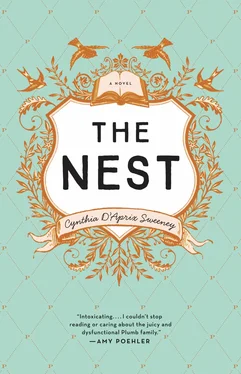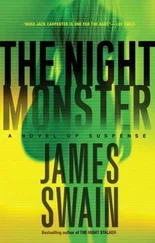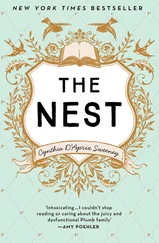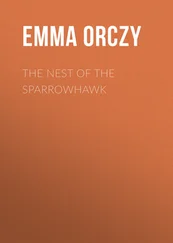Weeks after (barely) graduating from college, Jack moved to Greenwich Village with a very particular goal in mind: to have sex, lots and lots of sex. Vassar had been somewhat disappointing in that regard. At first, Jack attributed the lack of free and easy fucking that he had assumed would come with his student ID and highly coveted dorm single to statistics: A former women’s college, there were fewer gay men than women on campus. Then he assumed the problem was AIDS, which was cutting a terrifying swath through the gay community. But the gay population at Vassar seemed more angry than scared. Ninety miles south in New York City, Larry Kramer was sending up his clarion cry of outrage and the mostly well-to-do, mostly white sons and daughters of Vassar were complying — in spades. They organized, marched, protested, heckled, debated, and demanded. Outrage, Jack learned, was not an aphrodisiac; it was exhausting.
Jack wasn’t against activism precisely, but campus politics seemed trivial to him, almost laughable. It was activism of the easiest sort, run by idealistic youth barely out of their teens who never left the peachy enclave of their campus in Poughkeepsie. Enlightenment fueled by a heightened sense of mortality was certainly logical, but it also seemed blatantly self-serving in a way that infuriated Jack. Years later, he would experience the same intolerance about the surge of patriotism that swept through New York after 9/11—the run on American flags by people who would also confess in lowered tones how they’d recently put their place on the market while looking at houses in New Jersey or Connecticut or in their hometowns somewhere in the Midwest, “nobody’s flying a plane into the Gateway Arch.” True patriotism, Jack believed, would have been for his fellow Americans to look inward after 9/11 and accept a little blame, admit the attacks had happened, in part, because of who they were in the world, not in spite of it. But no. Suddenly at every public function his previously godless neighbors would stand with hands on heart to earnestly intone the Pledge of Allegiance and sing “God Bless America.”
“I wish Kate Smith had never been born,” Jack said at a dinner party one night, inciting a nasty argument about patriotism and its relative merits. The woman sitting across the table went on and on about the duties of civilians during wartime and in the face of terrorism until he broke off a piece of his baguette and threw it at her. He’d meant to startle her, shut her up, not hit her square on the chin. He and Walker had missed dessert.
The mini ACT UP protests at Vassar felt self-indulgent to Jack. How daring was it to stage a “Kiss In” in front of one of the most sexually diverse and accepting populations for miles and miles? It had all felt frivolous and half-assed and bloated with self-regard.
Still, when Jack’s best friend at college, Arthur, took a job with the Gay Men’s Health Crisis and invited Jack to share an apartment on Barrow Street, Jack jumped at the chance. He would have preferred Chelsea, where the gay scene was a little younger, a little more hip, but Barrow Street was great. Barrow Street was classy in a way Chelsea wasn’t, historical, only blocks away from the Stonewall Inn. Sure, he told Arthur, he’d be thrilled to volunteer at GMHC, was desperate to get to the front lines, do something that mattered.
But what Jack really wanted was to have sex. Not earnest, leftist, collegiate sex — sex that required far too much conversation and not nearly enough lube — but Greenwich Village, Christopher Street, drop your pants but leave on those leather chaps, mindless, mind-blowing, anonymous sex.
So it was with a certain karmic comeuppance, Jack would realize later, that mere months after arriving in the West Village, he would meet the love of his life, Walker Bennett.
WALKER LIKED TO SAYthat he’d been born gay and middle-aged. He’d grown up in Greenwich Village; his parents were roving adjunct professors, self-anointed socialists who intermittently practiced open marriage and dabbled in bisexuality and refused the tenure track because it was nothing more than a union to protect the interests of the already-coddled upper class. When Walker came out to them in high school, it had all the Sturm und Drang of him announcing that he was switching from violin to cello.
Early on, Walker knew he wanted a different kind of life from his parents who lived paycheck to paycheck, collected furniture on the street the night before the bulk garbage pickups, counted coins in the sofa cushion to pay for take-out fried rice. After graduating from law school in the mid-1980s, he returned to the West Village, planning to work at the same corporate firm where he’d done his summer internship, only to find himself deluged by neighbors and old family friends, mostly gay men, who were suddenly getting sick and dying in alarming numbers and under mysterious circumstances. They wanted Walker to help them write a will or fight an eviction or understand their disability insurance. Within months, Walker had more work than he could handle, some funneled to him from GMHC, some from the prominent, often still-closeted gay business community. They trusted Walker. The premium he charged his wealthier clients allowed him to take on a lot of work pro bono, which he loved. After only one year, he was able to hire help, rent office space. Soon he was a neighborhood fixture: Walker, the genial, slightly overweight neighborhood attorney who would handle pretty much anything — even if you were broke, especially if you were queer.
The night Walker met Jack, he’d wandered into the raucous bar down near the Christopher Street pier on a whim. He usually preferred the quieter gay watering holes, but he’d had a long day. He was still in his work clothes, and as he made his way through the lively Friday night crowd, he spotted Jack, who was difficult not to notice, bare chested and wearing extremely short shorts, dancing by himself, ecstatically, to “I Will Survive.” Walker hated that stupid fucking song. Everyone around them was most assuredly not surviving. Two of his clients, both sick and quarantined at St. Vincent’s, had died that week, making six in just the last month. He needed a drink. He needed to get really, really drunk. As he approached the bar, Jack started waving at him, calling him over. Walker wondered if they’d met before. Was he a client? A friend of a client?
“Have we met?” he yelled at Jack, trying to be heard above the deafening, thumping disco beat. Jack shook his head no and looked Walker up and down. Then he leaned close to Walker’s ear; his cheek was damp and smelled of perspiration and some kind of too-sweet cologne. “That suit looks really uncomfortable,” Jack said, his voice hoarse from singing. He handed Walker a shot of tequila.
And in a move so out of character, so weirdly un-Walker-like and spontaneous and defiant and hopeful, Walker tipped back the shot, swallowed, put the empty glass on the bar, grabbed the back of Jack’s sweaty head, and kissed him full on the lips.
Jack kissed Walker back, then pulled away and grinned, and said, “How about we start the weekend by undoing that belt?” They’d been together ever since.
STANDING AT HIS AND WALKER’S BEDROOM WINDOWin Greenwich Village (technically the far, far west village; their building was as far west as you could go without living on a houseboat in the Hudson), Jack watched a Carnival cruise ship glide up the center of the river, heading to collect its passengers at Pier 88. He’d probably see the boat later that evening, being tugged in reverse until it reached the open harbor and could swing south. A cruise sounded good to Jack right now, anything to get him out of New York and to take his mind off Leo and his massive Leo-related migraine.
Читать дальше
Конец ознакомительного отрывка
Купить книгу












